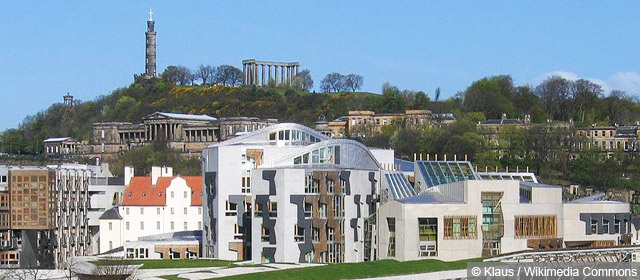 Upon its publication in late 2009, my book The Illusion of Freedom: Scotland under Nationalism predicted that the SNP’s determination to build a post-British future for Scotland was likely to preoccupy any future government led by David Cameron.
Upon its publication in late 2009, my book The Illusion of Freedom: Scotland under Nationalism predicted that the SNP’s determination to build a post-British future for Scotland was likely to preoccupy any future government led by David Cameron.
I also speculated that he would find it hard to translate his strongly pro-Union instincts (not ones that enjoy unanimous approval in today’s Conservative party) into an effective strategy for conserving the 205-year-old Anglo-Scottish union.
The Scottish National Party (SNP) then headed a minority government with a conspicuous absence of fresh ideas for tackling the deep-seated social and economic problems that threatened to blight any future period of independence. But, under Alex Salmond, a talented political actor manager whose aims and leadership style are carefully examined in the book, the SNP proved adept at doing nothing, but doing it very well, as one opponent put it in 2011.
A sudden transformation in the SNP’s fortunes occurred in May of that year, in the fourth elections fought for the Scottish parliament since its establishment in 1999. Overnight, the four-party political system was turned into one where the SNP enjoyed near-complete domination. It acquired an absolute majority of seats on a minority of votes, something it was assumed was beyond any one party thanks to the proportional electoral system used. This was in part due to a professional and well-financed campaign, but the crucial factor was the collapse of the Liberal Democrats (always stronger in Scotland than the rest of the UK). The Scottish electorate was the first anywhere in Britain to be able to deliver a negative verdict on the decision to go into coalition with the Conservatives after the 2010 British general election.
In that election, Labour won 41 out of 59 Scottish seats, with the SNP left with only 7. A year later, against a complacent and lacklustre Labour Party with a colourless British leader, Alex Salmond was packaged as the defender of Scottish interests against a predatory London elite prepared to impose biting austerity measures. A referendum on independence was mentioned, but little mention of it was heard in the campaign for the Scottish parliament.
While I had predicted a tightening grip on Scottish politics by the SNP, I had not expected the rise to be quite as swift or spectacular. Although the existential future of Scottish independence remains to be seen, the following factors will prove pivotal in its outcome:
- The continuing absence of any coherent rebuttal of the SNP’s agenda due to the weakness of each of the pro-Home Rule unionist parties in Scotland.
- The retreat of civil society in Scotland and the preference of the media – particularly broadcasting – for simplifying political options around constitutional alternatives enabling personality politics to come to the fore, to the benefit of Alex Salmond and the SNP.
- The inability of the British state, centred on Westminster and Whitehall and dominated by parties out of touch with much of opinion across the UK, to expose the flaws in the SNP’s separatist vision for Scotland. It remains to be seen if David Cameron’s call for an early referendum around a specific question will be defied by the SNP even though, in legal terms, holding a binding referendum is a power enjoyed by Westminster.
- With Scottish and perhaps even UK politics being dominated by territorial politics, a backlash from a slowly growing English nationalism cannot be ruled out. Scotland’s own domestic problems are also likely to be neglected by rulers fixated on constitutional jousting, meaning that any benefits from improved governance after the split with the rest of the UK are likely to be postponed long into the future.
- The SNP is already seeking alliances among rising powers in East Asia and also in the Middle East in order to discredit the claims of its opponents that an independent Scotland will be financially unviable. It is quite possible that international factors will complicate any divorce, especially if Salmond confirms my claim that he sees independence being consolidated by abandoning a Western orientation, with Scotland emerging as a neutral state and acting as a West European gateway for emerging powers elsewhere in the world.
- Whether or not independence is secured, the SNP appears poised to enjoy long-term dominance as the party of the underdog, cleverly exploiting populist themes that resonate well with lower-income voters even though it is now bankrolled by some of the leading Scottish capitalists. This increases the risk that the new politics will be the old top-down conformist brand with a more accomplished political force in the driving-seat.
Writing in 2009, I opened my book with a description of how the SNP exploited the ethnic imagery of the Braveheart movie, a highly fictionalised account of the Anglo-Scottish medieval conflicts leading up to the 1314 battle of Bannockburn. The most likely date for a referendum to decide Scotland’s future relationship with the rest of the UK is 2014, the 700th anniversary of this crucial military engagement. It will require restraint, not always previously apparent, to prevent the campaign from acquiring a bitter ethnic dimension and creating long-term antagonism between Scotland and England.